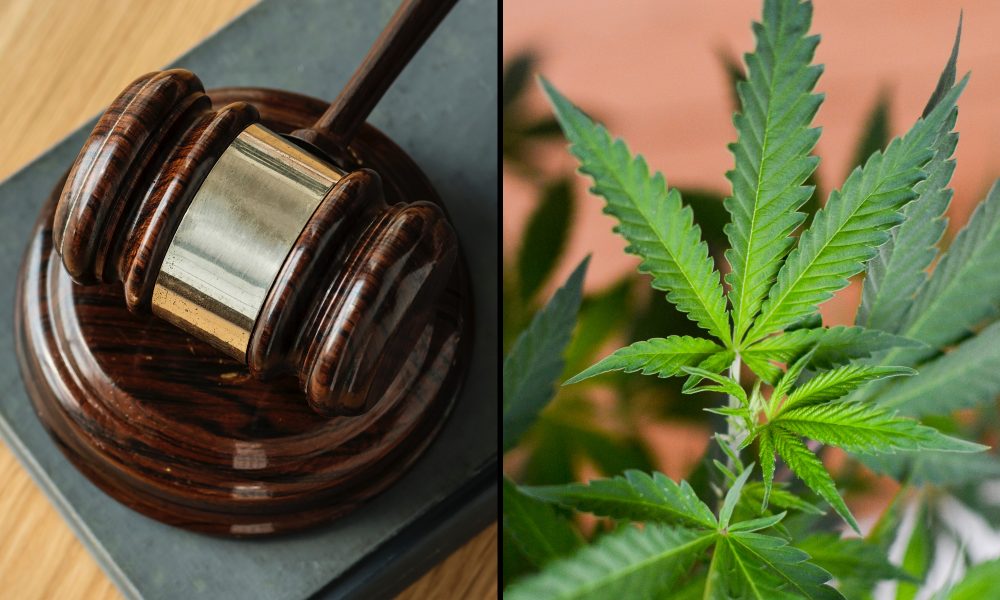“This Court and our state Supreme Court have repeatedly held that the odor of marijuana alone provides probable cause to search the object or area that is the source of that odor.”
By Kelan Lyons, NC Newsline
The North Carolina Court of Appeals issued a ruling Tuesday reversing a trial court’s decision to suppress evidence that police obtained during a traffic stop, despite still-unanswered legal questions over whether the smell of marijuana is, by itself, a sufficient reason for police to search a person’s vehicle.
An officer with the Charlotte-Mecklenburg Police Department pulled over Antonio Demont Springs on May 17, 2021 because he thought Springs’s license plate looked suspicious. Springs seemed nervous as the officer approached the vehicle, according to the ruling. His hands shook as he fumbled through the paperwork he handed to the officer.
Police learned Springs had been driving with a revoked license. The license plate was also not real. The officer asked Springs about the marijuana he smelled, but Springs said he hadn’t smoked in the car.
“I just got the car from my homeboy,” Springs said. “That’s probably why.”
The officer asked Springs to get out of the vehicle. The officer opened a Crown Royal bag and found a digital scale,”a green leafy substance,” per the opinion, two baggies of white powder and baggies of pills.
Springs was later indicted for possession of drug paraphernalia, trafficking in drugs and possession with intent to sell or deliver a controlled substance. Springs filed a motion to suppress the evidence the officer found, contending law enforcement didn’t have probable cause to search the car and his Crown Royal bag. His argument: hemp is legal in North Carolina, and it is “indistinguishable from marijuana in odor and appearance,” so the smell of marijuana alone is not sufficient to justify police searching North Carolinians’ cars.
He referenced a memo published by the State Bureau of Investigation that explains that industrial hemp is the same species of plant as marijuana, but it contains lower levels of the psychoactive chemical found in cannabis. The memo notes that hemp legalization complicates law enforcement’s job because there’s no simple way for police to test and determine whether a substance is marijuana or hemp.
The trial court agreed with Springs, determining that because hemp is legal and smells like marijuana, odor alone was an insufficient reason for police to search a car.
The Court of Appeals disagreed.
“This Court and our state Supreme Court have repeatedly held that the odor of marijuana alone provides probable cause to search the object or area that is the source of that odor,” wrote Judge Toby Hampson, a Democrat, joined by Judge Jefferson Griffin, a Republican.
But Hampson did acknowledge a Court of Appeals decision from 2021 that noted, “The legal issues raised by the recent legalization of hemp have yet to be analyzed by the appellate courts of this state.”
That analysis will have to wait. Hampson did not rule on whether a police officer simply seeing or smelling marijuana was a sufficient reason to search a vehicle, because the officer in Springs’s case had ample other reasons for probable cause. For one, Springs had said his friend could have smoked weed in the car earlier. He also had an invalid license and a fictitious license plate.
“Thus, the Officer was aware of several suspicious circumstances—including the odor of marijuana—at the time of the search. Therefore, under the totality of the circumstances, the Officer had probable cause to search the Crown Royal bag,” Hampson wrote. “Consequently, the trial court erred in granting Defendant’s Motion to Suppress the evidence that resulted from the search.”
Before reaching that conclusion, however, Hampson scolded the state’s lawyers for violating the Rules of Appellate Procedure since they didn’t “include any statement of grounds for appellate review.”
Hampson warned that the state’s mistakes were substantial enough that the higher court could have simply dismissed the appeal, but ultimately decided to take on the case because it “raises sufficient merit.”
But, Hampson wrote, “given the substantial and gross violations of the Rules of Appellate Procedure,” the court ordered the state to pay, as a sanction, the cost of the appeal.
Judge Hunter Murphy, a Republican, concurred with his colleagues’ analysis but disagreed that the Court of Appeals should have taken on the case.
“I decline this opportunity to do to the State’s job for it and would dismiss its appeal,” Murphy wrote in a short dissent.
This story was first published by NC Newsline.
NFL Partnering On New Study Using CBD To Treat Pain And Protect From Concussions
Photo elements courtesy of rawpixel and Philip Steffan.
Read the full article here

